By: Jasmine Taylor
Location & Demographics
The Metta Monastery is located outside of Valley Center, California. It is found at the end of a road that leads into an avocado orchard. The mountains of northern San Diego County surround this orchard. The monastery grounds are filled with lush, beautiful, breathtaking scenery and incredible landscapes that house vegetation on almost every hill.

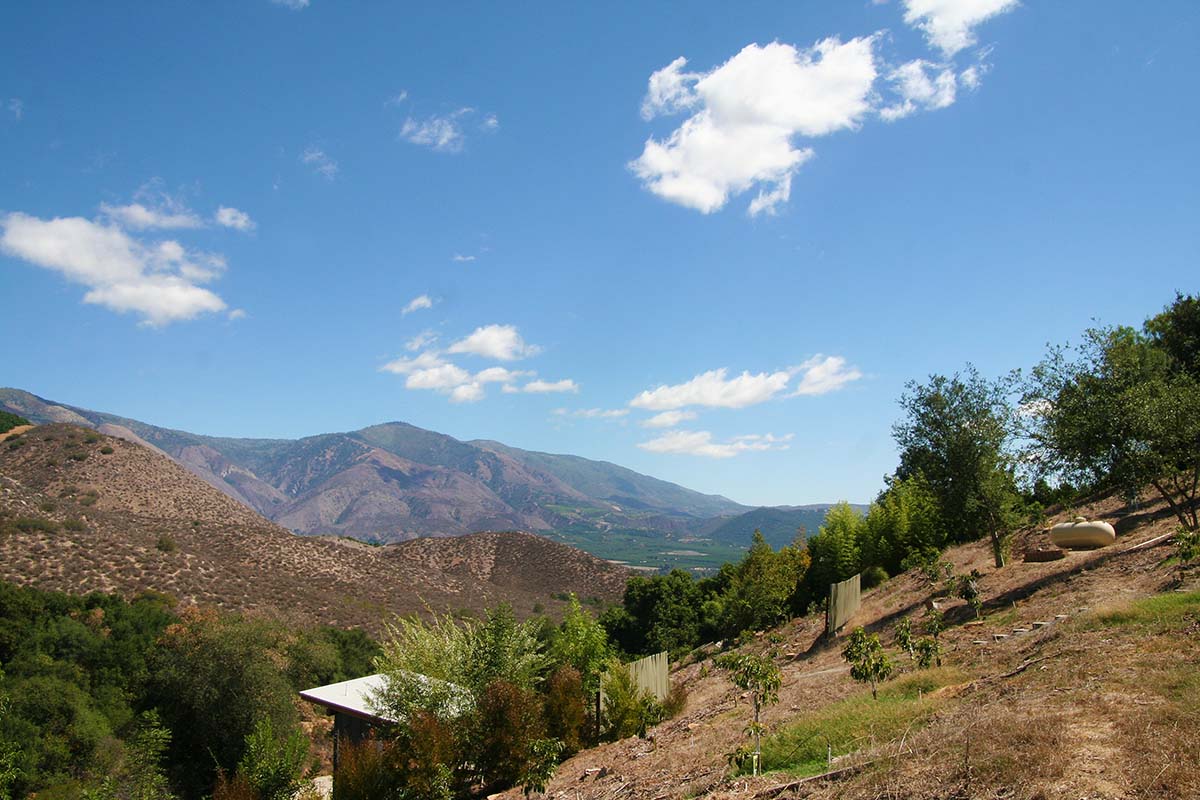
There are nine American monks and one Thai monk in residence at the monastery. Additionally, laymen and laywomen are welcome in the Metta Monastery to practice Buddha’s teachings and offerings.
The Metta Monastery is funded through donations. These are mainly used for the upkeep of the grounds and building maintenance. All of the Dhamma provided here is offered for free. This is because the founders believed in distributing the Dhamma in line with the way Buddha thought his teachings should be shared. Furthermore, they believed that the best way to express gratitude for the teachers’ generosity in offering free materials was by putting the teachings into practice, earnestly.
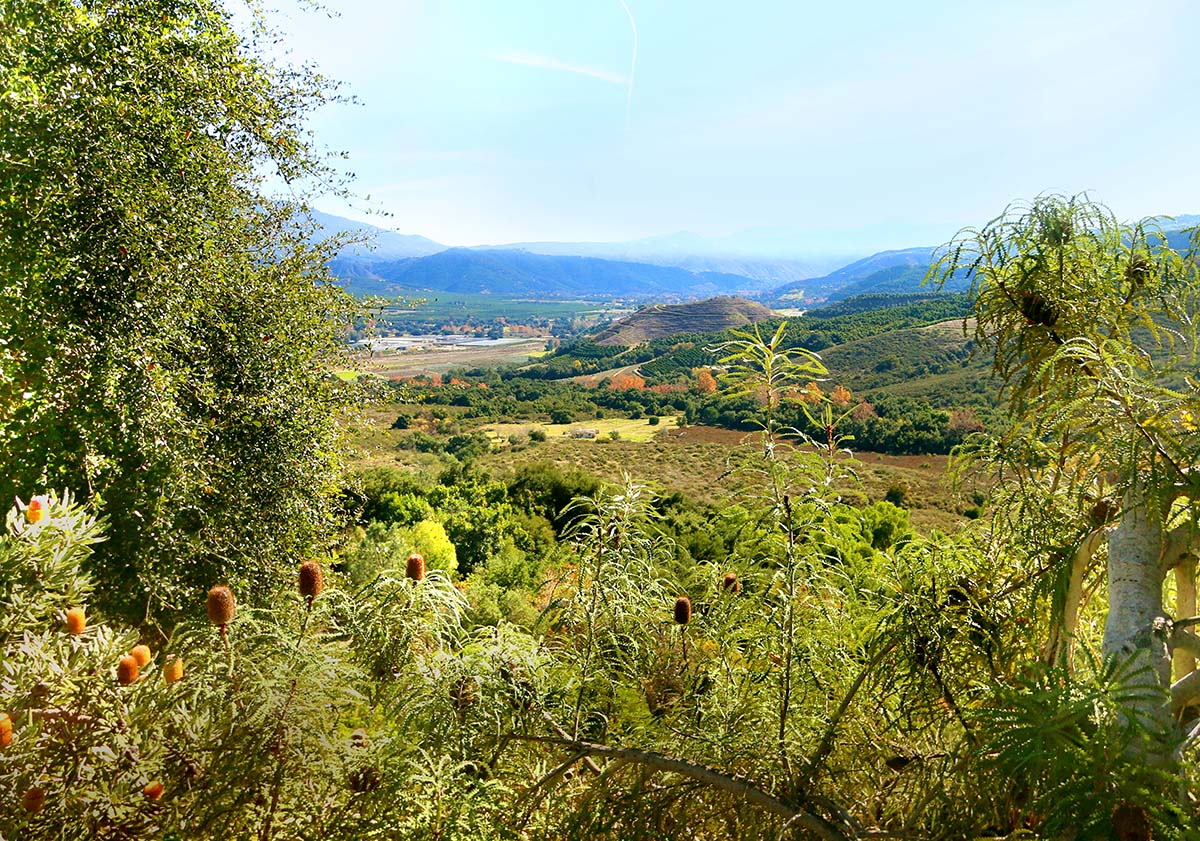
Founders & Buddhist Tradition
Ajaan Suwat Suvaco
The Metta Forest Monastery was founded in 1990 by Ajaan Suwat Suvaco and was under his direction for three years. He was born on August 29, 1919, and was ordained at twenty. He became a student of Ajaan Funn Acaro two or three years later. He also studied briefly with Ajaan Mun. Following Ajaan Funn’s death in 1977, Ajaan Suwat stayed on at the monastery to supervise his teacher’s royal funeral and the construction of a monument and museum in Ajaan Funn’s honor. Ajaan Suwat came to the United States in the 1980s and there he established four monasteries. There is one in Seattle, Washington, two near Los Angeles, and the last is the Metta Forest Monastery in San Diego County. He returned to Thailand in 1996 and died in Buriram on April 5, 2002, after battling a long illness.
Ajaan Geoff
Ajaan Geoff, also known as Thanissaro Bhikkhu, is an American Buddhist monk of the Kammatthana (Thai Forest) Tradition. After graduating from Oberlin College in 1971 with a degree in European Intellectual History, he traveled to Thailand, where he studied meditation under Ajaan Fuang Jotiko. He was ordained in 1976 and lived at Wat Dhammasathit, where he remained following his teacher’s death in 1986. In 1991, he traveled to San Diego County, United States, where he helped Ajaan Suwat Suvaco establish the Metta Forest Monastery (Wat Mettavanaram). He became the successor of Ajaan Suwat Suvaco in 1993 and has been directing the monastery since. He was made abbot of the Monastery and the meditation teacher.
Tradition
The Metta Forest Monastery is a meditation monastery that follows the Thai Forest tradition. It focuses primarily on giving men the opportunity to become ordained as bhikkhus. This way they can practice along the Dhamma and Vinaya training rules taught by Buddha over 2,500 years prior.
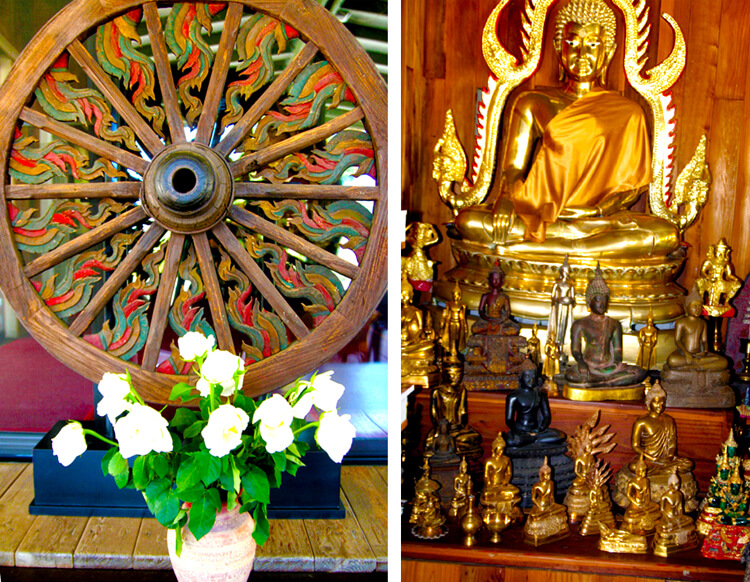
Schedule & Activities
Activities
There are plenty of things to do at this meditation monstery. The monastery provides Dhamma books and CDs on meditation and Buddhism in the sala (Meditation Hall). These are free of charge and can be taken back to friends and family for a while. They are also available online and can be downloaded for free.
The site offers a wide collection of English translations of suttas from the Pali Canon and of the Dhamma from the Kammaṭṭhāna (or Thai Forest) Tradition of Buddhism. Kammatthana means “basis of work” or “place of work.” The term is often used specifically to identify the Thai Forest Tradition and the forest tradition lineage founded by Phra Ajaans Mun and Sao. Thanissaro Bhikkhu is the English translator here for this monastery and authored all the English translations of these works. One of the sermons, Buddha’s Wisdom, is important to this monastery because it is the 5,000th Dhamma evening talk given by Thanissaro Bhikkhu. These audios date back to 2000 and the rest of them can be found at the link provided below.
https://www.dhammatalks.org/audio/evening/2024/241107-the-buddha-s-wisdom.html
Monastery Etiquette
There is a certain etiquette for attending this monastery. The first rule is that all visitors must dress conservatively. Casual and comfortable is fine, but shorts and anything provocative or revealing are not. Another rule is that visitors should avoid the monks’ area of the Monastery where their huts are.
Guests are asked to be supportive of the Vinaya rules that the monks follow. When interacting with the monks, they might alert visitors to certain protocols or restrictions. First, everyone must be respectful of their requests. Second, the monks do not expect the laypeople to know all the Vinaya rules so they are happy to explain them. Visitors are required to observe the Five Precepts while at the monastery.
Additionally, the Monastery is not always completely silent. Moreover, certain chores require cooperation among the guests, so some speech is necessary. However, visitors are encouraged to be quiet to perpetuate an atmosphere conducive to meditation. Lastly, you are not allowed to pick fruit from the orchard without first getting permission from one of the monks.
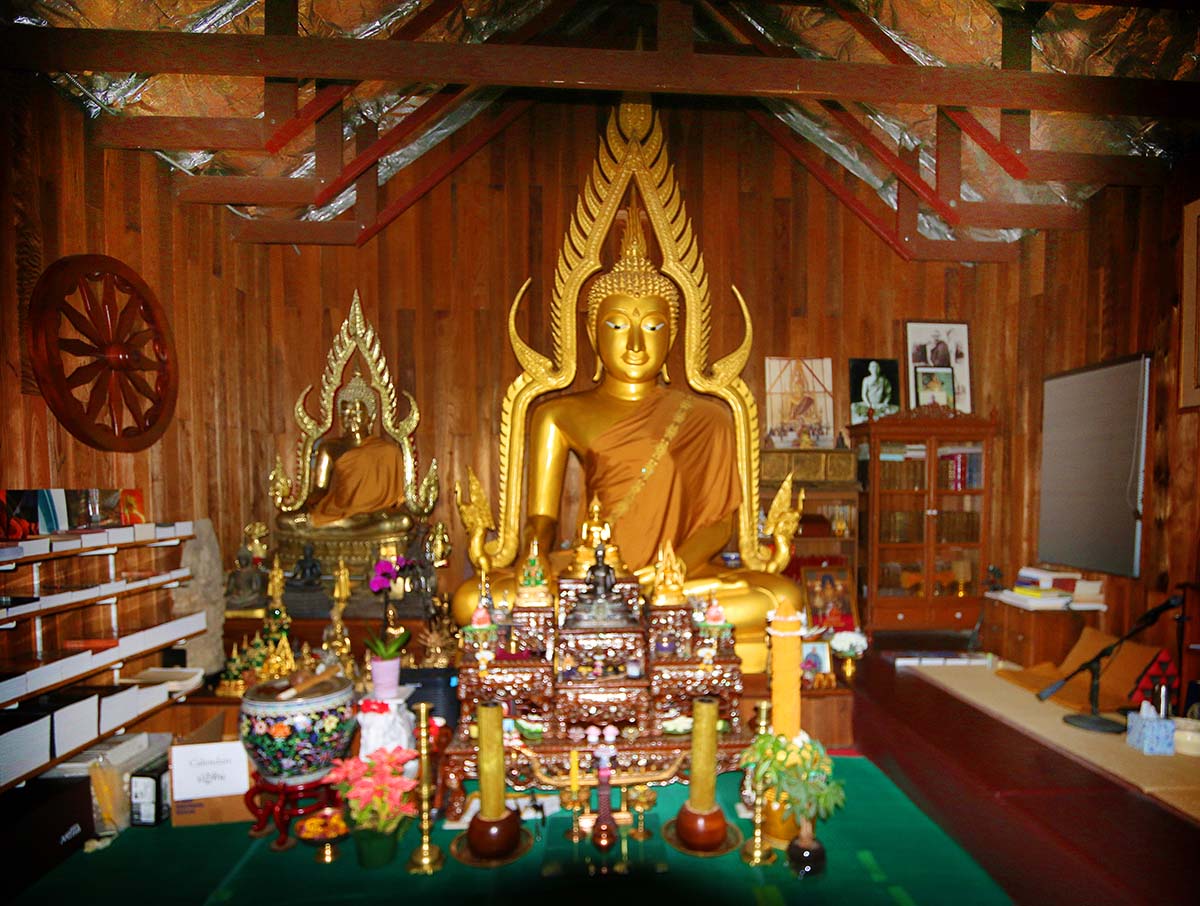
Day Visits
The Metta Monastery offers day visits. It is open every day for year-round visitors. Also, calling ahead for permission to visit is not necessary. There is an alms round at 8:30 am every day. There is even time set aside for those running late to the sala (Meditation Hall). Visitors have till 9 am to offer food to the monks. This is the only meal in the day for the monks, so if someone arrives after 9 am, the resident laypeople can take the food and store it overnight to offer to the monks the next day. Visitors can participate in the daily activities provided in the monastery. People can spend the day meditating in the sala or on the platforms and walking paths in the avocado orchard. If a visitor has a question regarding meditation and the Dhamma, the abbot is available in the afternoon to answer them. A closer look at the daily schedule is provided below.
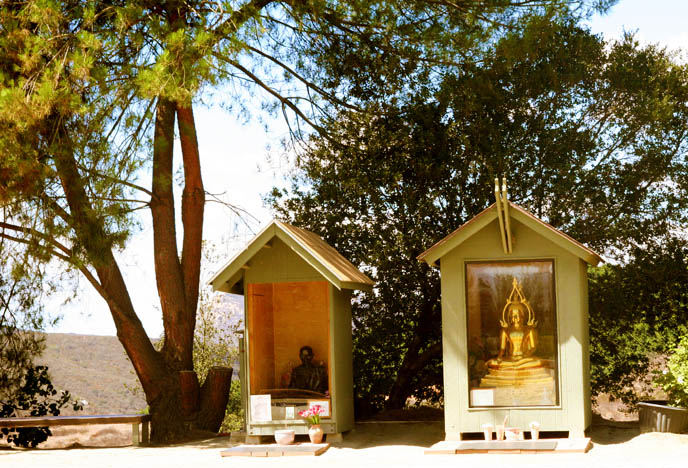
Typical Daily Schedule
- 5:30 ‒ 6:35. Morning meditation. After a few minutes of chanting, the monk plays a recorded Dhamma talk at the beginning of the hour’s meditation.
- 6:45 ‒ 8:30. Morning chores. Visitors should ask one of the long-term guests what would be helpful.
- 8:3o. Alms round. The monks walk on their alms round down the road to the kitchen where the laypeople put rice in their bowls.
- 8:45. The monks’ meal. The rest of the food brought or cooked by the laypeople is offered to the monks at the sala
- 9:00. Morning chanting. After offering the meal, the laypeople perform the morning chanting. On Sundays, the senior monk leads the laypeople in chanting the ceremony for taking the Five Precepts.
- 9:30. The laypeople’s meal. The laypeople have a potluck meal at the kitchen area.
- 10:00 ‒ 11:00. Cleanup after the meal.
- 11:00 am ‒ 4:00 pm. Each visitor is assigned an individual sitting platform and walking path in the orchard, and is free to structure the time for walking or sitting meditation, study or resting as he or she sees fit.
- 4:00 ‒ 4:30. Q & A. A question and answer session with Taan Ajaan Geoff about the Dhamma and meditation practice.
- 4:30 ‒ 6:00. Afternoon chores. The monks or the long-term guests will let visitors know what would be helpful.
- 7:00 ‒ 8:20. Evening meditation. The evening session consists of about 20 minutes of chanting followed by an hour’s meditation. Taan Ajaan Geoff usually gives a Dhamma talk with meditation instructions for the first 10 or 20 minutes of the sit.
- 8:20 ‒ bedtime. Nighttime. The rest of the night is free for walking or sitting meditation, study, or resting.
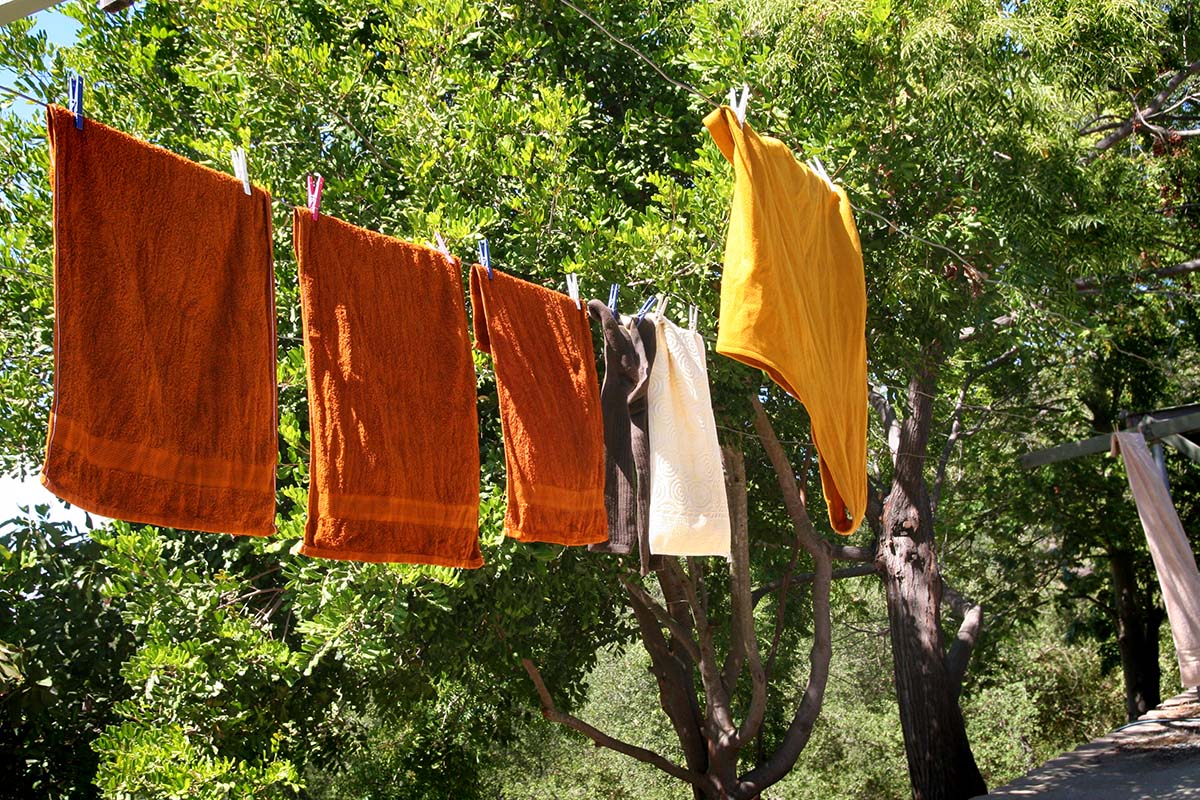
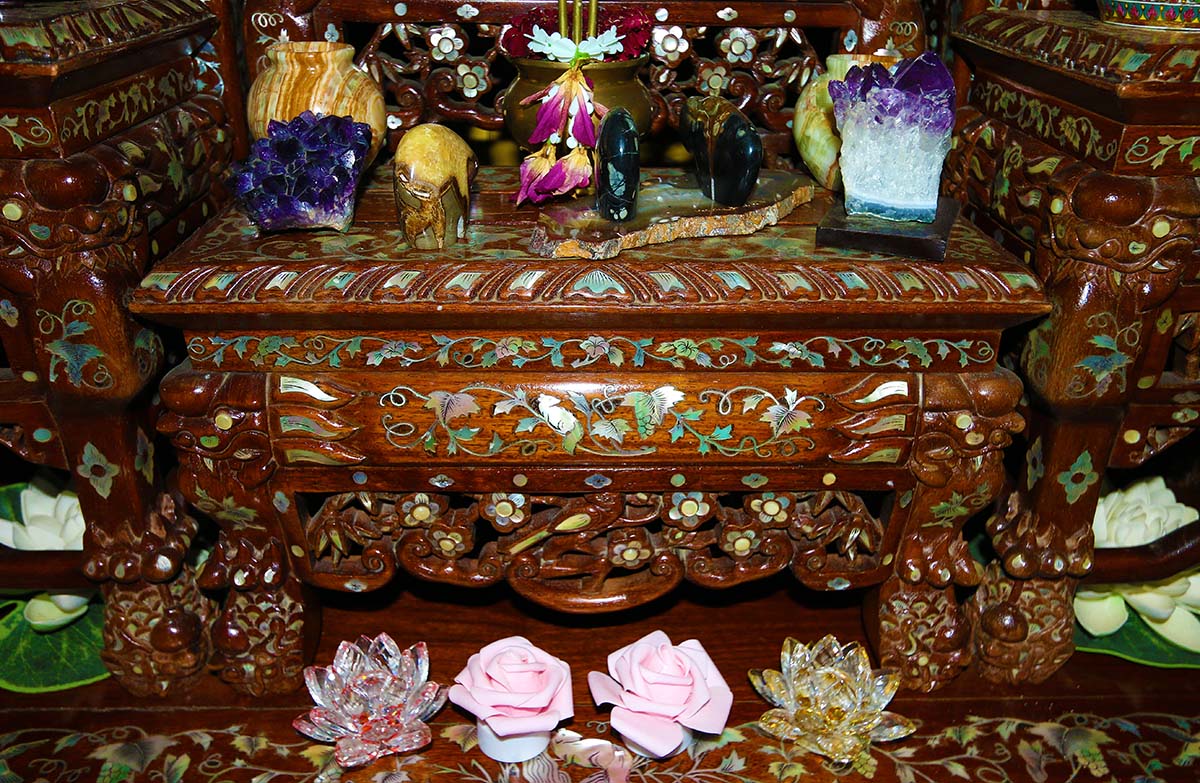
Overnight Retreats
The Metta Monastery also offers overnight retreats. If visitors want to come for an overnight visit, they must call or write (not email) to make a reservation. For a long retreat of a week or more, it is a good idea to reserve 3 to 4 months in advance since the spots can fill up quickly. For shorter visits of just a few days, there is more chance of an opening on shorter notice. Usually, there are five to twenty visitors at any one time. Summer is usually the high season despite the hot weather. Lastly, first-time guests are allowed to stay a maximum of two weeks.
There are no scheduled retreats at the Monastery as there are at most meditation retreat centers. Rather, the Monastery is always in “retreat” mode, and visitors drop into and out of the routine according to their schedules. All visitors are asked to observe the Eight Precepts and to participate fully in the daily schedule of the Monastery. Another thing to note is that the sixth of the eight precepts limits overnight visitors to one meal per day but visitors can bring more food is they require certain accommodations.
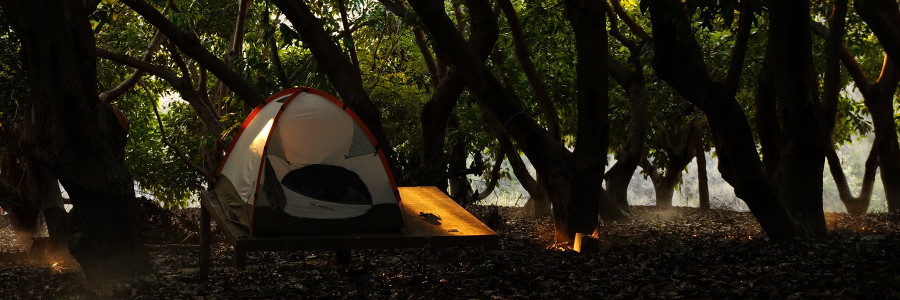
The monastery does not charge for room or board and everything is provided in the spirit of generosity by the monks and supporters of the Monastery.
The retreats typically have simple accommodations. There are 8 x 8 ft wooden platforms in the shade of the avocado orchard where tents can be pitched. Each platform has an accompanying walking path for meditation. There is also a dormitory-style 8-room guesthouse. The rooms are private and have a sleeping platform with some storage and a space heater but no air-conditioning. The guesthouse has 2 full baths and a half bath. The tent-dwellers have bathroom and shower privileges in the guesthouse and bathhouse, and space to keep some toiletries. There are almost always some vacant platforms and walking paths in the orchard for the guest house dwellers to use for meditation.
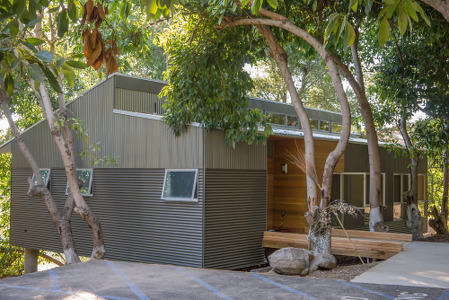
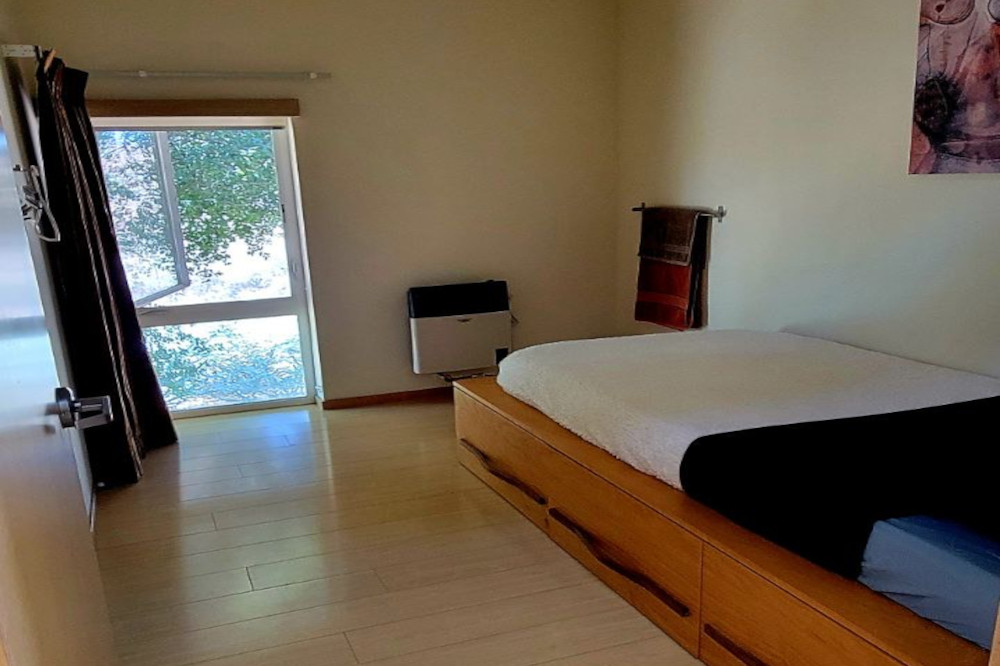
It is best to arrive between dawn and midday, however, anytime during daylight hours is acceptable. Out of consideration for the other guests, visitors are asked to arrive before dark except with permission from the guest monk or in an emergency. Departing is easier and less disruptive than arriving. Anytime during the day or night is fine as long as the visitor leaves quietly.
Sources
Metta Forest Monastery https://www.watmetta.org/about.html
Dhamma Talks https://www.dhammatalks.org/#/audio/evening